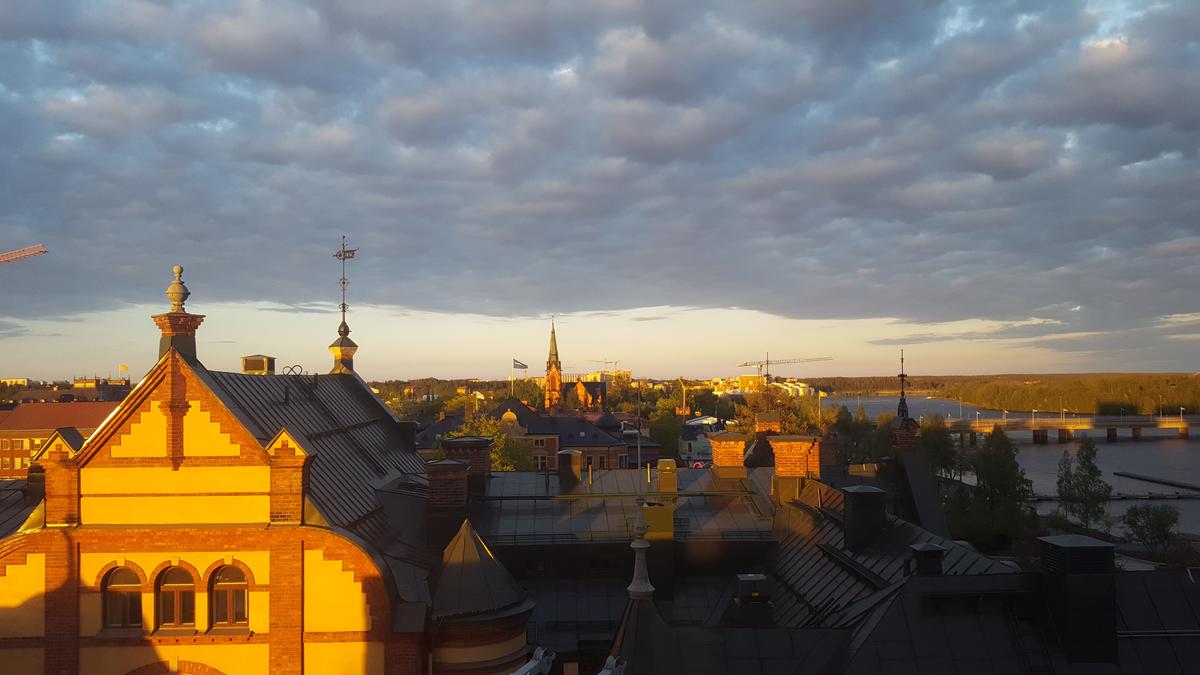Department of Geography, Urban, Environment, and Sustainability Studies Professor Ryan D. Bergstrom joined academics, politicians, non-government officials, industry leaders, and indigenous community members in Umeå, Sweden for the Ninth International Congress of Arctic Social Sciences (ICASS IX) in early June. Held every three years to highlight current research in Arctic social sciences and humanities, this year’s meeting focused on the theme “People and Place”, with the goal of highlighting the “many variances across the region in terms of climate, political systems, demography, infrastructure, history, languages, legal systems, and land and water resource”. With over 20 parallel thematic sessions ranging from climate change to international relations and law, and over 800 participants from more than 25 countries, ICASS IX was the largest Arctic-related conference ever held.
Dr. Bergstrom presented a paper in the “Resource Development and Extractive Industries” theme entitled “The Mine Closed – Now What? Re-Envisioning Resource Extraction Sites to Stimulate Local Communities.” In his presentation, he discussed the history of iron-ore mining in northern Minnesota and its economic and societal impacts to the region. In addition, he used the Cuyuna State Recreational Area near Brainerd, Minnesota as an example of how former extractive sites can be re-envisioned to stimulate local economies – in this case through developing a world-class mountain biking destination at the former Cuyuna Range.
At the conclusion of the conference, Dr. Bergstrom was invited to visit the Nordic Centre for Regional Development (Nordregio) in Stockholm, Sweden to discuss future research directions and opportunities. Nordregio focuses on regional development and urban planning in the Arctic, with a specific interest in regional policy directives that facilitate sustainable growth. Ryan hopes to collaborate with researchers from Nordregio in the future to understand better sustainability in resource extraction and tourism-dependent communities in Nordic countries, and how lessons learned in northern Minnesota might benefit Arctic decision makers.
To participate in the conference, Dr. Bergstrom was awarded an early career grant by the National Science Foundation Arctic Social Sciences Program via the University of Northern Iowa, as well as an international travel grant through the Global Programs and Strategic Alliance at the University of Minnesota.
